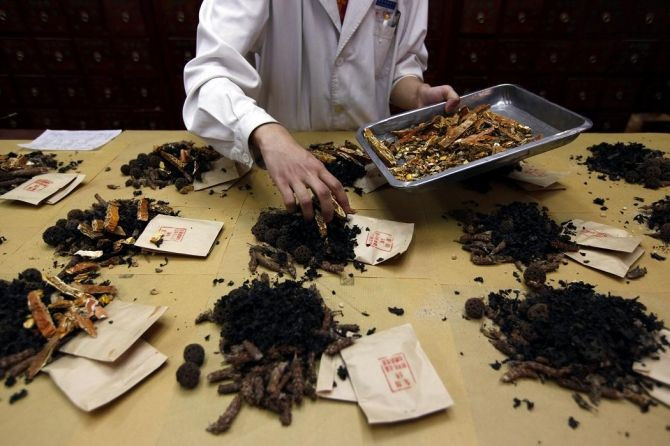Toxins and Traces of Endangered Animals Found in Chinese Herbal Remedies

A variety of potential toxins, allergens, and traces of endangered animals was revealed in DNA sequencing tests on 15 popular traditional Chinese medicines seized by Australian border officials, researchers said on Thursday.
Traditional herbal remedies have been used in China for more than 3,000 years and has been an important aspect of Chinese culture and main medical treatment for a large proportion of the country’s population, and until recent decades have risen in popularity around the world amounting to a global industry worth hundreds of millions of dollars a year, according to a molecular genetics study published in PLoS Genetics.
Despite their popularity, the actual connect and the biological origins of ingredients that make up the herbal remedies are often hard to determine because they are often processed into pills and powders, which mingles the components too much making them difficult to identify.
In the latest study, researchers at Murdoch University used a new technology called high-throughput sequencing of DNA that can produce thousands of genetic readings at once, to analyze traditional herbal products like herbal teas, capsules, powders and flakes.
They found traces of 68 different plant families, including Ephedra and Asarum, which can be potentially toxic if the wrong dosage is taken, and animal families that were classified as vulnerable, endangered, or critically endangered, including the Asiatic black bear and Saiga antelope.
"TCMs have a long cultural history, but today consumers need to be aware of the legal and health safety issues before adopting them as a treatment option," lead researcher Dr. Michael Bunce, a Murdoch University Australian Research Council Future Fellow, said in a statement.
Another concern was that many of the herbal remedies were mislabeled, which means that consumers are often unaware of the presence of some ingredients, including animal DNA and potential allergens such as soy or nuts.
"A product labelled as 100 per cent Saiga antelope contained considerable quantities of goat and sheep DNA," Bunce said. "Another product, Mongnan Tianbao pills, contained deer and cow DNA, the latter of which may violate some religious or cultural strictures."
Researchers said that while, in the past, conducting in-depth analysis of the biological elements in traditional therapies was tough, but the new second-generation method used in the study was both efficient and cost-effective.
"The approach has the ability to unravel complex mixtures of plant and animal products," researcher Megan Coghlan said in a statement.
Future tests could help government officials track and prosecute illegal trade of endangered animals and crack down on dangerous ingredients, researchers said.
"It is hoped that this new approach to genetically audit medicinal products will bring about a new level of regulation to the area of complementary and alternative medicine," Bunce said. "Auditing TCMs would assist in prosecuting individuals who seek to profit from the illegal trade in animal products."
Published by Medicaldaily.com



























